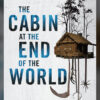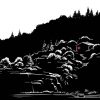Lorsqu’on a appris que Walter Hill allait être en ville cet automne et que le Festival du nouveau cinéma allait lui rendre hommage, on trépignait de joie! Ce n’est pas tous les jours qu’on peut aller visionner en compagnie de son créateur un film culte de la trempe de The Warriors. Oui oui, le même monsieur qui a cocréé la franchise Tales from the Crypt! Il devait également venir présenter son dernier-né, Dead for a Dollar, un western mettant de vedette Willem Dafoe et Christoph Waltz. Or, sa sciatique le faisant atrocement souffrir, il a dû annuler son voyage dans la métropole à la 11e heure.
Qu’à cela ne tienne, Horreur Québec a tout de même eu le privilège de s’entretenir une petite demi-heure avec le cinéaste lors d’une rencontre Zoom, alors qu’il nous a gâtés en acceptant de revenir avec nous sur ses contributions à la plus grande franchise de science-fiction horrifique jamais créée, Alien. Eh oui, M. Hill a co-produit/scénarisé les trois premiers films mettant en vedette la magnifiquement sombre et ô combien sauvage créature extraterrestre de la race des xénomorphes.
![Walter Hill et les xénomorphes [Entrevue] 16 WH1](https://cdn.horreur.quebec/wp-content/uploads/2022/12/WH1.jpg)
Au cours de notre entretien, il fut notamment question de Ripley (saviez-vous que le personnage était initialement masculin et que Weaver aimerait beaucoup la revisiter?) et Bishop, mais aussi de Giler (son fidèle partenaire, qui nous a quittés à la fin 2020) et Giger (découvrez pourquoi il n’a jamais rencontré le père de la biomécanique), sans oublier la Sainte Trinité de la trilogie de Hill, soit les Scott, Cameron et Fincher. Bref, du bonbon pour les fans d’Alien.
Horreur Québec: Dans le scénario original d’Alien (1979), le personnage de Ripley était un homme, ce qui a changé par la suite grâce aux retouches que vous avez faites. Pourquoi avez-vous senti que le monde avait besoin d’une femme si forte dans ce film?
Walter Hill: Ça n’a pas été qu’un éclair de génie. On avait acquis le scénario d’O’Bannon/Schusett, et tous les personnages du vaisseau spatial étaient des hommes. J’ai donc dit à mon partenaire d’écriture et de production David Giler, «ça ne fonctionnera pas, on va devoir y ajouter des femmes, comme dans le futur, il y a aura certainement autant d’astronautes femmes qu’hommes». Comme c’était évident que j’allais devoir faire une première passe de réécriture sur le scénario, David a suggéré que le Capitaine Dallas, le rôle de Tom Skerritt, devienne une femme. J’ai donc débuté avec ça en tête, mais c’est là que c’est devenu compliqué. J’ai vite réalisé plusieurs choses: c’était bien plus une histoire d’horreur que de science-fiction. En fait, plusieurs des éléments futuristes frôlaient le ridicule. La salle des moteurs, par exemple, c’était comme sur un bateau en mer au 19e siècle…
HQ: …avec les chaînes et tout…
WH: Ouais, c’était comme dans un sauna [rires]. Ainsi, j’ai dressé une liste de ce qu’on avait besoin pour faire un film d’horreur. J’ai pensé qu’avoir le monstre jouer dans la tête d’une femme était plus puissant qu’avec un homme. Mais j’avais besoin de quelqu’un de très fort, évidemment. Je lui ai donc donné le nom d’Ellen Ripley, Ellen était le nom de ma mère, alors que Ripley venait de Ripley’s Believe it or Not! Une fois que j’ai eu le personnage de Ripley, la réécriture s’est faite plutôt facilement. On avait besoin de quelques nouvelles surprises—
HQ: …comme un cyborg, le personnage d’Ash [joué par Ian Holm], que vous avez créé, n’est-ce pas?
WH: Ouais, exactement. On avait besoin de ce genre de choses, pour rendre le tout un peu plus dynamique. C’est aussi un de ces films qui sont assez faciles à parodier. On disait que les personnages mourraient en ordre décroissant, soit les plus connus en premier [rires]. Et c’est devenu une formule pour tellement de films qui ont suivi.
![Walter Hill et les xénomorphes [Entrevue] 18 WH2](https://cdn.horreur.quebec/wp-content/uploads/2022/12/WH2.jpg)
HQ: Et que dire de cette scène, celle où la créature sort d’une poitrine, si surprenante et puissante, qui a évidemment été copiée maintes et maintes fois par la suite. Mais à l’époque, c’était tellement novateur!
WH: C’est en fait la raison pour laquelle on a acheté le scénario. C’était la seule scène qu’on trouvait vraiment bonne [rires]. On l’a adoucie un peu et remanié son contexte. Mais comme l’idée globale est déjà dans le scénario original, je ne peux prendre aucun crédit pour cette scène.
HQ: L’artiste suisse H.R. Giger a été un élément clé afin de définir l’imagerie extraterrestre, de la créature xénomorphe jusqu’à son vaisseau. Avez-vous pu collaborer avec lui?
WH: Comment on a entendu parler de Giger et, en quelque sorte, hérité de ses trucs, c’est par Dan O’Bannon, qui avait travaillé avec lui sur l’adaptation avortée de Dune par [Alejandro] Jodorowsky. Je n’ai jamais eu la chance de rencontrer Giger; pendant le tournage londonien du film, je tournais The Warriors à New York. Mais dès qu’on a vu ses œuvres dans ses immenses bouquins [comme son Necronomicon], on est tombé en amour avec son style. Une approche aussi sombre que biotechnologique. En tant que producteurs, on a cru que c’était un look parfait pour ce scénario. Et lorsque Ridley [Scott] est arrivé dans le projet, il a immédiatement vu son immense potentiel [rires] et l’a fait fructifier avec brio. Ridley a fait un boulot formidable sur le film. Je crois encore aujourd’hui que c’est son meilleur. Et il a réalisé de très bons films.
![Walter Hill et les xénomorphes [Entrevue] 20 WH3](https://cdn.horreur.quebec/wp-content/uploads/2022/12/WH3.jpg)
HQ: Tout à fait. Ensuite est venu Aliens (1986). Vous souvenez-vous du pitch initial de James Cameron? l
WH: David [Giler] avait lu avant moi le scénario de The Terminator de Jim. Et David et moi souhaitions faire une suite à Alien. On avait écrit un court synopsis qui tenait vraiment [rires] sur le derrière d’une enveloppe. À peu près cinq phrases, il me semble. On voulait que ce soit une expédition militaire qui retourne sur la planète. Avec évidemment, Ripley pour montrer la route, avec une bande de sceptiques qui seront confondus.
HQ: Donc, les marines étaient dans votre idée à la base, wow!
WH: Eh bien, on n’allait pas faire un autre film d’horreur. Cette fois, on voulait faire un film d’action. Et ça résume assez bien l’étendue de notre contribution créative [rires]! Jim est arrivé dans le projet, en adorant l’idée de faire une suite à Alien. Or, on avait de la misère à convaincre le studio… aujourd’hui, c’est ce que tout le monde veut faire, des suites. À l’époque, ce n’était pas si évident. Les studios pensaient jadis qu’elles coûtaient deux fois plus cher tout en étant à moitié moins bonnes [rires]. Mais ce n’est plus vrai depuis les 3 ou 4 dernières décennies. Jim nous a dit qu’il devait faire Terminator d’abord. Et comme le scénario génial de ce dernier nous avait vraiment impressionnés, et que le studio n’était vraiment pas pressé de faire quoi que ce soit, on lui a dit qu’on l’attendrait. Après la sortie de Terminator, soudainement, c’était un réalisateur très hot! Tel que promis, il a ensuite écrit la suite d’Alien, qu’on a pu monter avec la nouvelle garde de Fox. C’est vraiment Jim qui l’a écrit et réalisé. Et c’était sa partenaire Gale [Anne Herd] qui s’occupait de la portion acting. Notre fonction a été de déterminer l’idée générale de ce que ça devait être (…) et de convaincre le studio d’engager Jim, ce qui n’était pas une tâche facile originalement, avant qu’il ne fasse Terminator.
HQ: Vrai, comme il avait surtout fait de la direction artistique pour des productions de Roger Corman. Sur Aliens, vous avez également pu travailler avec Lance Henriksen [Pumpkinhead, Near Dark]. Vous rappelez-vous de votre première rencontre?
WH: Je crois l’avoir rencontré grâce à [l’acteur] Bill Paxton [1955-2017; Aliens, Frailty, Twister]. Bill et moi étions de bons amis. Lance, j’adorais son travail, et j’ai eu la chance de travailler à nouveau avec lui sur Johnny Handsome [réalisé par WH, sorti en 1989]. Il eut par la suite une belle carrière à la télé [avec la série Millenium, entre autres].
![Walter Hill et les xénomorphes [Entrevue] 22 WH4](https://cdn.horreur.quebec/wp-content/uploads/2022/12/WH4.jpg)
HQ: Un acteur génial, que vous avez pu diriger à nouveau pour l’épisode Cutting Cards de Tales from the Crypt [Saison 2, 1990], et qui est également revenu pour Alien3 [1992]. Lorsque vous songez au troisième Alien maintenant, qu’est-ce qui vous vient en tête?
WH: La pré-production fut tumultueuse, avec plusieurs scénaristes, plusieurs versions… David et moi avions plusieurs trucs qui se passaient dans nos vies à ce moment… et on ne voulait pas consacrer autant de temps dans ce troisième volet, que le studio voulait vraiment faire. La situation s’était inversée. On n’a jamais été très satisfaits des scénarios qui furent développés, c’était en partie notre faute, je dois l’avouer. On avait engagé un réalisateur [Vincent Ward], mais ça ne fonctionnait pas. Ensuite, le studio a recommandé David Fincher, dont je ne connaissais pas le travail, mais dès que j’ai visionné ses vidéoclips, j’ai été bluffé; c’était tellement magnifiquement fait.
HQ: Reste que diriger des acteurs reste assez différents que de travailler avec des chanteurs.euses ou des musiciens.ennes. Comment était-il sur le plateau?
WH: En fait, il était vraiment, bon; un naturel! Mais c’était une production trouble… il n’aimait pas le scénario… David [Giler] et moi nous sommes donc attelés au scénario, qu’on a pu rendre relativement décent… je crois qu’il y avait de bonnes idées dans cette histoire, si sombre. Ça remuait les fondations de la franchise, et on croyait fermement que ça devait clore le tout. Avec la mort de Ripley à la fin. Son suicide, qui sauve l’univers, en quelque sorte. Elle se sacrifie pour tuer l’extraterrestre afin qu’il ne trouble plus jamais la paix. Donc, nous, on pensait qu’on en avait fini avec tout ça.
![Walter Hill et les xénomorphes [Entrevue] 24 WH5](https://cdn.horreur.quebec/wp-content/uploads/2022/12/WH5.jpg)
HQ: Mais comme le film fut un succès, le studio a voulu en faire un autre, bien évidemment!
WH: Vous savez, «elle pourrait être un clone», et ci et ça. On n’était jamais satisfaits… on a commissionné un scénario, qui s’est avéré être assez solide, mais ils ne l’ont pas aimé. Ça ne fonctionnait tout simplement plus. On s’est donc entendus pour un divorce à l’amiable entre le studio et notre duo à David et moi. On gardait la possession d’une certaine partie de la franchise. Ils ont insisté — c’était leur idée — pour que l’on continue à être crédité. Je pensais que sans réelle contribution, on ne devrait pas obtenir de crédit. Selon eux, nos noms ajoutaient une légitimité à la franchise. Ainsi, ils ne nous rachetaient pas sans mettre nos noms en tant que producteurs(…) Donc, à partir de ce moment, tout ce qu’ils ont fait venait d’eux.
HQ: Après votre «divorce», étiez-vous curieux de voir ce que le studio faisait avec votre franchise? Avez-vous visionné les volets suivants?
WH: Tout le concept d’Alien Vs. Predator, je l’ai trouvé tellement ringard, pour être honnête avec toi. Aussi, j’imagine que c’est l’arrogance qui parle, mais à mon avis, je croyais qu’on était tellement supérieur à Predator. L’idée qu’ils étaient en quelque sorte égaux, j’ai trouvé ça choquant. Et si je me souviens bien, ces films n’ont pas été de grands succès. (…) Pour moi, la franchise Alien se résume aux trois premiers films. Après, ce ne fut que commerce et studios. Je ne condamne pas, c’est comme ça, c’est tout, mais ce n’a m’intéresse pas du tout.
![Walter Hill et les xénomorphes [Entrevue] 26 WH6](https://cdn.horreur.quebec/wp-content/uploads/2022/12/WH6.jpg)
HQ: Vous auriez récemment rédigé un synopsis de 50 pages qui ramènerait Ripley dans l’histoire. Le slogan serait «Dans l’espace, personne ne peut vous entendre rêver». Pouvez-vous m’en dire plus?
WH: Sigourney [Weaver] et moi sommes amis, et lorsqu’on s’est vus il y a quelques années, elle m’a dit qu’elle aimerait beaucoup retourner en selle si quelqu’un trouvait le moyen. Ce à quoi j’ai répondu: «je pourrais réfléchir à une histoire», tout en ayant pas mal d’appréhension sur ce que le studio en penserait. Je me suis donc mis là-dessus, en rédigeant un long préambule à l’histoire principale. Lorsque David, qui vivait à Bangkok, est revenu en ville [L.A.], on a bossé dessus pendant environ une semaine, avant de l’envoyer à Sigourney, qui l’a aimé. On l’a donc envoyé au studio qui a répondu «nous n’avons aucun intérêt». Et ensuite, on a su que [la franchise] avait été vendue à Disney.
HQ: Dommage. Ça ferait un fabuleux roman graphique, si jamais quelqu’un pouvait l’adapter! C’est clair que nous, les fans, on adorerait lire votre nouvelle histoire. Merci tellement d’avoir pris le temps de discuter avec moi de cette grande franchise qu’est Alien, c’était un réel honneur.
WH: Merci beaucoup, ce fut très plaisant.
***
![Walter Hill et les xénomorphes [Entrevue] 28 WH7](https://cdn.horreur.quebec/wp-content/uploads/2022/12/WH7.png)
Horreur Québec: In the original script for Alien (1979), the Ripley character was a man, which changed thanks to your rewrites. Why did you feel the world needed such a strong woman in that movie?
Walter Hill: It wasn’t [just] one lightning strike. We had acquired the O’Bannon/Schusett script, and the characters were all men… in the spaceship. And I said to my writing and producing partner David Giler, ‘This is not gonna fly, we’ll have to have some women in this: in the future, astronauts will certainly be women as well as men.’ So, I was gonna do the first go-round on the script, rewriting it (…) and David suggested that Captain Dallas, Tom Skerritt’s part, become a woman, and I started with that in mind but, this is where it got kind of tricky. (…) I realized several things: it’s much more of a horror story than a science-fiction story. I mean, the science fiction in this… is borderline ludicrous. The engine room, for instance, is like on a ship at sea in the 19th century…
HQ: …with the chains and all…
WH: Yeah, it’s like a steam room or something [laughs]. And I thought of dressing the needs of making something a horror movie. I thought the monster getting inside a woman’s head is more powerful than on a male character. But I wanted somebody very strong, obviously. So, I gave her the name of Ellen Ripley; Ellen was my mother’s middle name. And Ripley was from Ripley’s Believe it or Not! And once Ripley was a character, [re]writing was not very difficult after that. We needed new surprises—
HQ: …like a cyborg, the Ash [Ian Holm’s] character, that you created, right?
WH: Yeah, exactly. We needed that kind of business, to make [the story] a little trickier. It is also one of those movies that is almost easy to parody. We used to say: they die in reverse order of billing [laughs]. And it became a formula for so many movies that followed.
HQ: And that scene, the chestbursting scene, it was so striking, so surprising, of course, it’s been copied over and over afterwards. But at that point, it was so fresh!
WH: That was actually the reason why we bought the script. It was the only scene we really thought that was good [laughs]. We smooth it out a bit. We restaged it. But it was very much in the original script, so I can’t take any credit for that.
HQ: Swiss artist H.R. Giger was key in defining the whole Alien look, from the xenomorph creature to its ship. Did you get to work with the man?
WH: The way we inherited Giger’s stuff and became aware of, was through Dan O’Bannon, which had worked with Giger on [Alejandro] Jodorowsky’s unmade Dune project. I never met Giger—during the London shoot, I was busy shooting The Warriors in New York. But as soon as we saw his work in these big books that he put out [like his Necronomicon], we fell in love with that look. The kind of dark biotech approach. As producers, we thought very much that should be the look of the script. And when Ridley [Scott] came to the project, he immediately saw that gold [laughs] and did very well with it. Ridley did a wonderful job on the movie. I still think it’s his best film. And he’s made a lot of good ones!
HQ: That’s right. And then Aliens (1986) came. Do you remember James Cameron’s initial pitch?
WH: David [Giler] had read Jim’s script for The Terminator, first. And David and I both wanted to do a sequel to Alien. We wrote out a little story that was really [laughs] on the back of an envelope almost. It was only about five sentences, I think. We wanted it to be a military expedition to go back to the planetoid. And obviously, Ripley, which showed the way through the disbelief of her story, then through the belief of her story.
HQ: So, the marines were there from the get-go in your story, OK, wow!
WH: Well, we weren’t going to do another horror movie again. This time we wanted to turn it into an action movie. That was almost entirely our creative contribution [laughs]! Jim came in, and he said he really wanted to do a sequel to Alien. We were having troubles with the studios who were not convinced… nowadays, that’s all anybody does, wanna make sequels. In those days, it was still a little iffy. The attitude of the studios to sequels in the old days was they’re twice as expensive and half as good [laughs]. But that haven’t been true for the last 30 or 40 years. So, Jim said he had to do Terminator first. And since we were really impressed with his Terminator script, it was a wonderful script, and the studio was in no hurry to get anything done, we said we’d wait. After Terminator came out, suddenly, he was a very hot director! He came back, and wrote down the Alien sequel, and we got it made with the new people at Fox. Jim really wrote it and directed it. And his partner Gale [Anne Herd] did most of the acting business. Our function was the idea of what it got to be (…) and getting the studio to approve Jim, which was not easy, originally, because he had not done Terminator yet.
HQ: Yeah, because he only had done art direction stuff at that point, for Roger Corman’s productions, mainly. On Aliens, you also got to work with Lance Henriksen [Pumpkinhead, Near Dark]. Do you remember when you first met?
WH: I think I met him through [actor] Bill Paxton [1955-2017; Aliens, Frailty, Twister]. Bill and I were good friends. Lance, I loved his work, and I got a chance to work with him again on [1989’s WH-directed] Johnny Handsome. He went on to have a really successful television career [through the Millenium series, among others].
HQ: Such a great actor, whom you got to direct again for the Tales from the Crypt episode Cutting Cards [Season 2, 1990], and who also had a part in Alien3 [1992]. When you think of that third Alien today, what springs to mind?
WH: It was a troubled pre-production, there were many writers, many scripts… both David and myself (…) had a lot of other things going in our lives… we didn’t want to invest that much time into what the studio—which really much wanted to do a third one. The situation had been reversed (…). We were never satisfied with the scripts that were being developed… it was partly our fault, I’m sure. We did hire a director [Vincent Ward], but that didn’t work out. But then the studio recommended David Fincher—I didn’t even know his work, but then I saw the music videos he did. They were really stunning, beautifully done.
HQ: But directing actors as opposed to singers and musicians, those are two rather different things. How was he on set?
WH: Well, he was very good, by nature! But it was a troubled production… he was not happy with the script… David [Giler] and I went to work on that script, we got it in a reasonable shape… I think it had some good ideas in it. It was a dark story. It faced up to certain questions within the franchise, and we felt very strongly that it should end the franchise. And that’s her death scene at the end. [Ripley’s] suicide that basically saves the universe. She makes a sacrifice of herself to kill off the alien so it will nevermore trouble the universe. So, we thought we were kind of done with it.
HQ: But of course, since it was a success, the studio wanted to do another one!
WH: You know, ‘she could be a clone’, and this and that. We were never happy… and we commissioned one script, which actually turned out to be a pretty good script. But they didn’t like it. They commissioned a script, which they like but we didn’t like. It just turned out to be that we weren’t getting along. A divorce settlement was worked out between David and I and the studio. We retain some ownership of the franchise. They insisted—this was their idea—that we kept being credited. I thought if you’re not making a real contribution, you shouldn’t get a credit. They took the position that our names added legitimacy to the franchise. So, they wouldn’t buy us out without just putting our names on as producers… (…) So, from that point on, everything they did was their development, their input, their approach.
HQ: After your ‘divorce’, were you curious to see what they done with your franchise? Did you watch any of the following movies?
WH: The whole idea of Alien Vs. Predator, I thought it was so silly, to tell you the truth. Plus, I guess it’s just the arrogance speaking, but I thought we were just so superior to Predator. The idea that they were equal somehow, I found it offensive. And as I recall, the movies were not widely successful. (…) To me, the Alien franchise, is the first three movies. After that, it’s commerce and studios… I don’t really condemn it, it’s kind of the way things are, but it’s not of any interest to me.
HQ: Apparently you recently wrote a 50-page treatment bringing back Ripley in the story. The tagline was ‘In space no one can hear you dream’. Could you tell me more about that?
WH: Sigourney [Weaver] and I are friends, we got together a couple of years ago, and she told me that she’d very much like to get back in the saddle and do it if one can figure it out. And I said: ‘I could figure out a story’, but I was very apprehensive about where we were with the studio. So I sat down and I wrote out a long preamble to the main story, and David came back to town [LA], he lived in Bangkok then. We worked on it for about a week, we sent it to Sigourney, she liked it. So, we send it to the studio, and they said, ‘We have no interest.’ And the next thing, they sold everything to Disney.
HQ: It’s really too bad, as it would make an amazing graphic novel if someone could adapt your treatment! Us fans, would love to read that new story of yours. Thanks so much for chatting with me about that great franchise that is Alien, that really was an honor.
HQ: Thank you very much, very pleasant.


![Walter Hill et les xénomorphes [Entrevue] 15 WH0](https://cdn.horreur.quebec/wp-content/uploads/2022/12/WH0-1400x733.jpg)






Vous devez être connecté pour poster un commentaire.